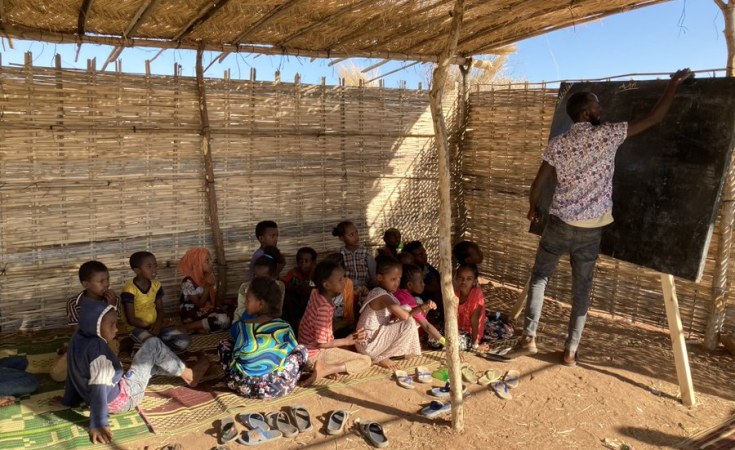New York — "I first think about my children. They are why we were forced to leave - because our children are always our first concern."
These are the moving words of Victoria, who fled the brutal war in Ukraine with her two daughters. Her eyes welling up with tears, she recalled their dangerous journey from Ukraine. She and her two school-aged daughters were forced to leave behind everything they have ever known.
I met Victoria during my recent mission to Moldova, together with USAID, FCDO-UK, UNICEF, UNHCR, Theirworld and civil society senior representatives. Victoria and her girls now live with a host family in Moldova, and despite the hardship and uncertainty of what the future holds for her loved ones still in Odessa, she finds some respite in the fact that her two daughters are attending school. "Here they can continue their education, socialize and take their mind off the war. They can forget about it for a while and just be children again."
Tragically, the story of Victoria and her daughters is not unique; it is the story of the 5 million Ukraine refugees who have already fled the deadly conflict in Ukraine. It is also the story of over 128 million children and youth whose lives today are shattered by armed conflicts, forced displacement, climate-induced disasters and other crises across the globe: in Africa, Asia, Middle East and South America.
The global loss of childhood and sense of despair have become universal. This is a shameful trend for humanity and the time has come to transform despair into hope. The most cost-effective and efficient way to do so is through urgent, substantive and predictable financial investments in quality education for those children left furthest behind in emergencies and protracted crises.
As Leonardo Garnier, Special Adviser to the UN Secretary-General for the 'Transforming Education Summit' stresses in this month's high-level interview: "The truth is that education remains one of the most underfunded areas of humanitarian aid, receiving less than 3% of total global humanitarian funding. This has to change."
To ensure quality education for vulnerable children caught in the midst of crises requires urgent, bold and significantly scaled-up financing by both humanitarian and development actors, as well as the private sector. The European Union is an excellent role model: it invests 10% in education from both its humanitarian and development envelopes.
What kind of financing are we willing to invest to make a transformative change? How much do we value true transformation to ensure that every child and adolescent can access a quality education as their last hope when everything else in their world has fallen to pieces?
This year, as we accelerate our efforts towards the 2030 Agenda deadline, the UN Secretary-General's 'Transforming Education Summit', being convened in September 2022, is our collective opportunity to make a real difference. By transforming the way in which we deliver financing through pooled funding, grants and loans and by transforming financial envelopes into significant, combined humanitarian-development investments for education, we can and we must, transform the lives of girls and boys through education, and thereby deliver on the Sustainable Development Goals and all Human Rights.
Anything less is not the transformation we urgently need today.
Yasmine Sherif is Director, Education Cannot Wait
The UN Global Fund for Education in Emergencies and Protracted Crises


